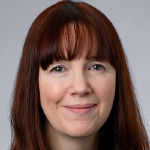- SixCap Healthcare Finance Launches Integrated Healthcare Capital Platform Combining Asset-Based Lending and Real Estate
- The Power of Mentorship: A Conversation with Frank Grimaldi
- Interview With SFNet’s Supply Chain Finance Convergence '26 Keynote, Financial Times' Robert Smith
- Appointing Independent Directors to Distressed Companies: An Alternative to Bankruptcy
- Gordon Brothers Bolsters Investment Committee with Janet Jarrett Appointment
SFNet WISF Conference Speaker, Suzy Welch, on Authentic Leadership, Career Clarity, and the Power of Values
May 7, 2025
By Michele Ocejo

Suzy Welch will be a featured speaker at SFNet’s Women in Secured Finance Conference, held June 11-12 in New York City. She is an award-winning NYU Stern School of Business professor, acclaimed management researcher, and New York Times best-selling author, most recently with “Becoming You: A Proven Method for Crafting Your Authentic Life and Career,” which is also a #1 bestseller on Amazon.
A graduate of Harvard University and Harvard Business School, Professor Welch is a frequent guest of the Today Show and an op-ed contributor to the Wall Street Journal. Her podcast, “Becoming You” is one of America’s most listened to career podcasts. She serves on the boards of public and private companies, and is the Director of the NYU | Stern Initiative on Purpose and Flourishing.
As the founder and CEO of Becoming You Labs, Professor Welch, who received her PhD in business from the University of Bristol, has developed several digital assessment tools, including The Values Bridge and PIE360. Two more assessment instruments, the Career Traits Compass and the Holland Bridge, are currently in the final stages of beta testing.
Professor Welch began her career as a reporter for The Miami Herald in 1981. After a serendipitous assignment to the business beat some years later, she left daily journalism to attend Harvard Business School, where she graduated as a Baker Scholar. The next seven years were spent at Bain & Company, as a consultant working with manufacturing clients in the Midwest.
In 1995, Professor Welch combined her two career paths at the Harvard Business Review. In her years at HBR, eventually as the publication’s editor. With her late husband, Jack Welch, Professor Welch is the author of two international bestsellers, Winning, in 2005, and The Real-Life MBA, in 2015. On her own, she is the author of the 2008-2009 New York Times and Wall Street Journal bestseller 10-10-10: A Life-Transforming Idea, a decision-making concept she originally wrote about as a columnist for O: The Oprah Magazine. A completely revised and updated version of 10-10-10 will be published by HarperCollins in March 2026.
After her husband’s passing in 2020, Professor Welch joined the faculty of NYU Stern School of Business as a clinical professor of management practice. One of her classes, “Becoming You: Crafting the Authentic Life You Want and Need” is an interactive self-discovery methodology that helps students discover and live into their authentic purpose. She also teaches “Managing with Purpose,” a survey of the many skills and competencies leaders must hone to be beloved by their teams, customers, and communities.
TSL Express: How have you personally evolved the 10-10-10 decision-making framework since first publishing it?
Welch: When I first introduced 10-10-10—a way to think through decisions through the prism of their consequences in 10 minutes, 10 months, and 10 years—it was meant as a tool to improve the clarity and consistency of your life. And it was. But over the years, I’ve come to see it as something deeper. It’s not just about weighing consequences anymore; it’s about excavating the “authentic you” behind every decision. These days, I tie it directly to the values work that forms my research and teaching at NYU. So yes, it’s still a decision-making tool—but now, it’s also a methodology for values-driven living.
As someone deeply involved in both media and business, how do you see the definition of leadership evolving over time?
I don’t actually believe in leadership, I believe in “lanagement,” the blending of leadership and management, because that’s reality in business today. If you just stand on the mountaintop and spout visionary statements based on a future none of us can see, everyone is going to get very annoyed, and rightly so. And if you just act like a grunty bureaucrat, crossing Ts and dotting Is and following process for process’s sake, same thing. In 2025 and beyond, you have lead and execute at the same time. They are not separate functions any more.
You’ve spoken about work-life balance being more about choices than perfect equilibrium—how would you advise young professionals navigating this today?
I’ve said it before and I’ll say it again: it is very, very hard, and possibly impossible, to have it all, all at the same time. Very few people can juggle everything perfectly, and I think it can be soul-crushing to try. And frankly, no one’s version of “balance” is the same. That’s why I urge young professionals to get brutally clear on their values. If you value achievement and family equally, you’re going to face some tough choices.
That’s OK. Just make them consciously. And once you do, give yourself permission to let go of the guilt.
What has been the most surprising lesson you learned about leadership that still holds true now?
That I’m not always who I think I am. I am not the list of words I use to describe myself – I am the person the world experiences. I learned this the hard way, through 360-degree feedback that told me I wasn’t the calm in the storm, as I thought I was—I was perceived as the storm. That was humbling. But it also changed me. It reminded me that self-awareness is a living, breathing thing. You don’t “achieve” it. You earn it, over and over again, by being willing to listen—even when the truth stings.
What do you think is the most overlooked quality in great leaders, and how can aspiring leaders cultivate it?
Honesty. Especially the kind you aim at yourself. I’ve seen so many people—myself included—live in a mismatch between their values and their lives. And you can get away with it… for a while. But eventually it burns you out. The leaders I admire most are the ones who’ve done the hard inner work and made peace with their truths. My advice? Use tools like the Values Bridge to get honest about what you really want. Then, act accordingly.
What key habits or mindset shifts have you found to be most critical for professionals (women in particular?) seeking sustained professional growth over the course of their careers?
For women especially, one big shift is giving up the fantasy of “having it all, all at the same time.” Life comes in seasons. And trying to do everything all at once is a recipe for exhaustion. Another mindset that’s served me well? Stop networking. Seriously—just stop. Make real friends instead. Be a good friend. Most of my biggest career leaps didn’t come from business cards. They came from genuine relationships with people who cared. That’s where the magic happens.
You often talk about the importance of aligning personal values with career choices. How can professionals effectively identify and integrate their core values into their career decisions and leadership style?
You have to do the work. Not the surface-y, check-the-box kind of work—but the kind that gets under your skin. I developed tools like the Alpha Omega exercise and the Values Bridge to help people dig deep. Once you identify your true values, the next step is to use them as filters. When you’re making a decision—about a job, a team, a Project—ask, “Does this align with who I really am?” If the answer is no, that’s your answer. Alignment isn’t fluff. It’s everything.
In your experience, what is the most overlooked question that candidates should ask interviewers to gain deeper insights about the company culture and whether they would truly fit in?
Here’s the one I wish more people would ask: “Who shouldn’t work at this company, and why?” That question cuts through the company website jargon and gets straight to the truth. If the answer is “people who don’t email after hours,” then you know what you’re walking into. Culture isn’t the mission statement. It’s who gets promoted. It’s who gets sidelined. Ask the question that reveals that reality.



.jpg?sfvrsn=f1093d2a_0)
